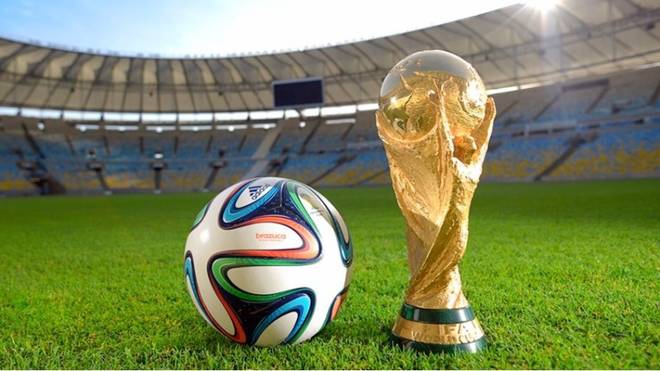World Cup: A spectacle of waste?
Without a doubt, football has become a money spinning sport across the globe. The organisation and management of football in Europe, for instance, is a multi-million dollars venture with all the teams running other sports related businesses. Indeed, all sorts of professionals-doctors, physiotherapists, psychologists, grass men, scouts, etc-are employed by the various teams in their […]


Without a doubt, football has become a money spinning sport across the globe. The organisation and management of football in Europe, for instance, is a multi-million dollars venture with all the teams running other sports related businesses. Indeed, all sorts of professionals-doctors, physiotherapists, psychologists, grass men, scouts, etc-are employed by the various teams in their drive for soccer glory. Therefore, football, in Europe, has gone beyond the mere recreational activity that it is in Nigeria. As a result of the excellent manner it is managed in Europe, youths across the continent have found in football a means through which they could use their talents to escape poverty.
The 2006 World Cup hosted by Germany was also a massive economic success. For instance, German tourism sector reportedly recorded a revenue increase in excess of over 400 million dollars over the month of the World Cup alone. Similarly, about 3 billion additional dollars, was further injected into the German economy, in merchandise such as jerseys and other stuffs regarding the Cup. Equally, over 500,000 new jobs were created before, during and after the competition.
However, some critics have labeled the World Cup as a misplaced event that showcases unnecessary opulence in the face of abject poverty across the globe. Before the 2014 World Cup hosted by Brazil, opponents of the World Cup claimed that the over 14.5 billion dollars spent by the country to host the competition could have been used to address the country’s rising poverty situation, education, healthcare and transport. Prior to the event, a survey revealed that 61 percent of Brazilians were of the belief that hosting the World Cup was a “bad thing because it takes money away from public services.” Only 34 percent saw it is a “good project because it creates jobs.”
There are multiple revenue streams that exist for organizers, including gate receipts, merchandise sales, sponsorships and licensing agreements, but by far the biggest income flow comes from television rights. However, the governing bodies behind sporting events are taking an increasing share of these spoils, making it harder for even the most efficient local organizers to make money.
According to experts, hosting the World Cup or any other major sporting event can boost a nation’s economy by attracting tourists, initiating important infrastructure projects and showcasing countries and cities as good places to do business. But the costs of achieving those noble goals appear to outweigh the economic benefits they produce. Before South Africa 2010 World Cup, around 450,000 tourists were anticipated to be in the country for the tournament.
In the end, only two thirds showed up. Despite the reduced numbers, visitor spend increased by almost a quarter, but at a cost of acquisition to the South African government of up to $13,000. For roughly the same amount, the country could have paid the wages of the entire working age population for a week.
In a book titled Soccernomics (2009), Professor Stefan Szymanski and Simon Kuper assessed the economic impact of hosting the World Cup and concluded that it is more of a waste. The duo revealed that Japanese and Korean governments expected that the 2002 Korea /Japan World Cup, which they co-hosted, could enhance their economies by a stunning $26 billion and $9 billion, respectively. However, after the event, there was slight mark of any such increase. The pair, therefore, concluded that hosting sports event does not really translate into prosperity for the people. Rather, fortunes are spent to maintain the facilities, which sometimes give way to decay.
This coupled with several allegations of shady deals between FIFA officials and soccer administrators from countries bidding to host the World Cup, cast serious doubt on the credibility of the competition as a worthwhile event. Indeed, it has been alleged that soccer administrators and politicians in some countries often use the World Cup project to enrich themselves at the expense of the sufferings masses.
However, from whichever way it is viewed, the World Cup and indeed, football in general, remain a major rally point for youths across the globe. One only hopes that FIFA would look inward to address various administrative issues that could undermine the credibility of the game.
Tayo Ogunbiyi, Lagos.
